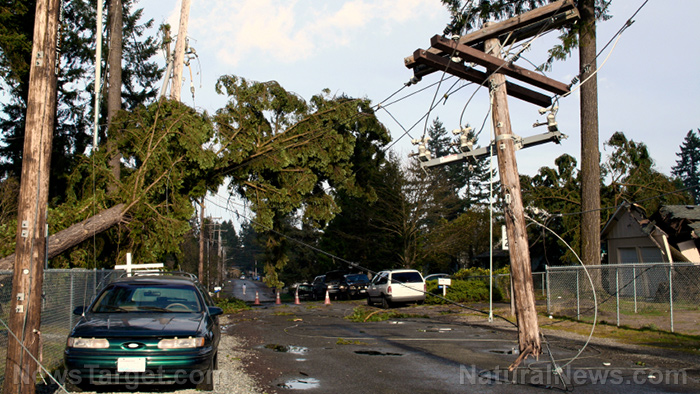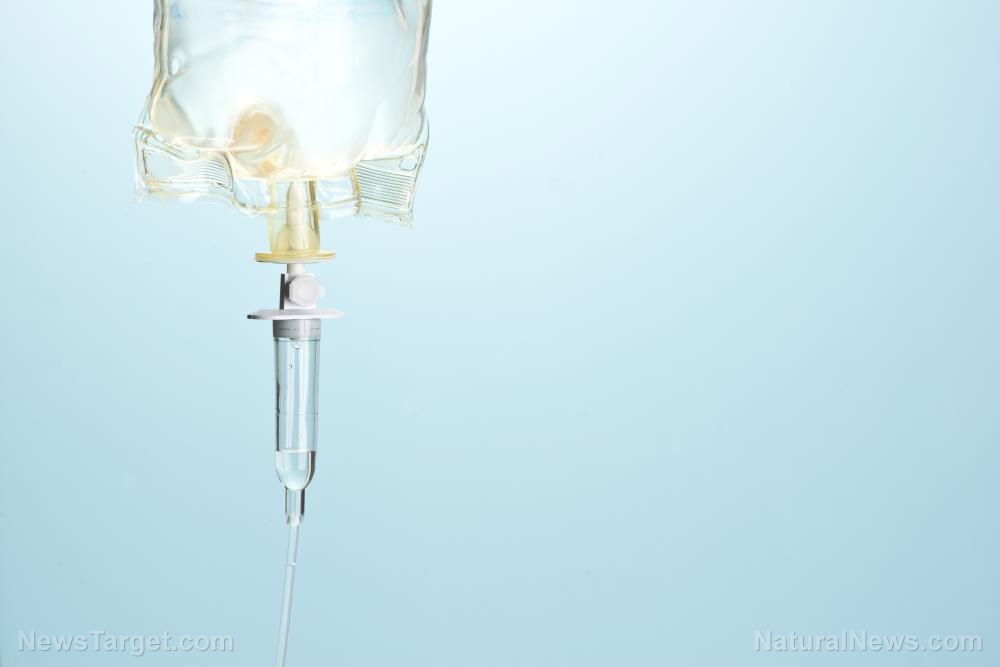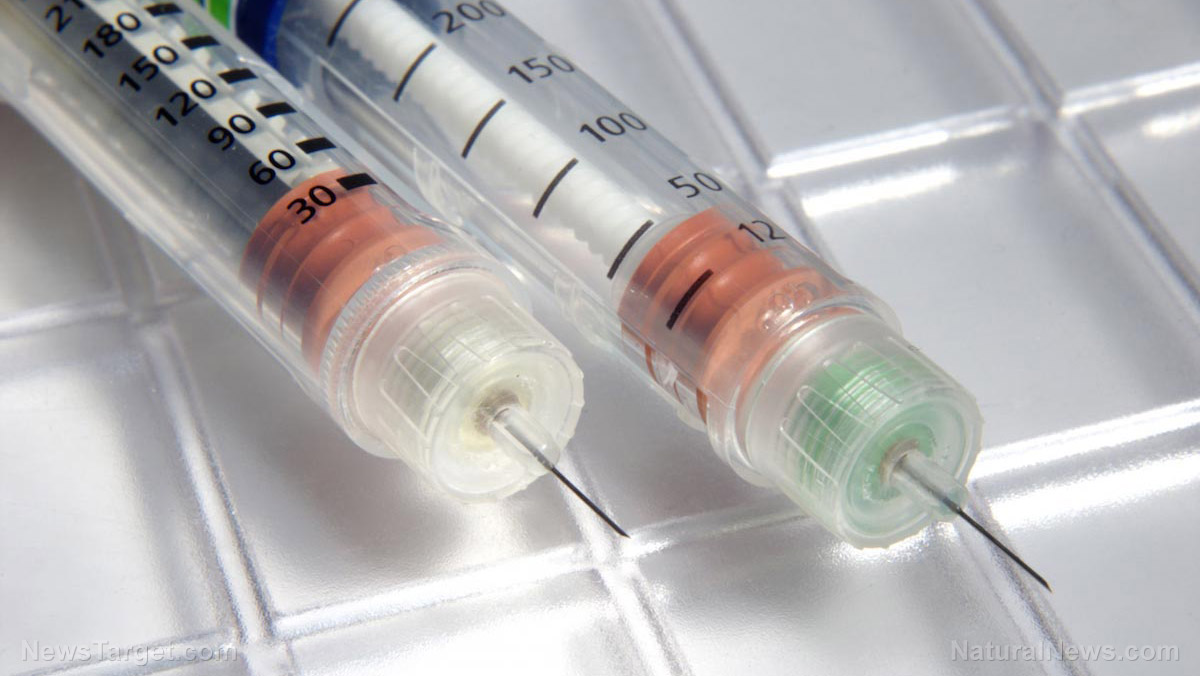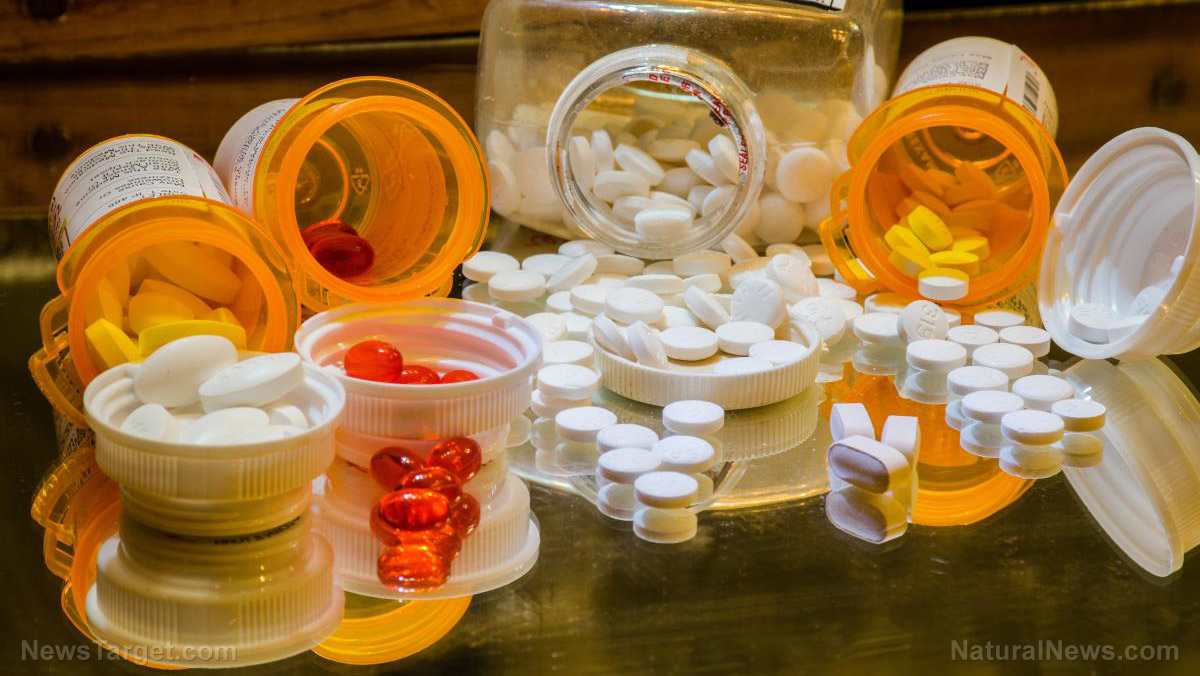IV fluid shortage hits hospitals after Hurricane Helene shuts top manufacturer
10/09/2024 / By Ava Grace

Hospitals across the U.S. are taking steps to conserve their supplies of IV fluids after Hurricane Helene struck a critical manufacturing plant belonging to the country’s biggest supplier.
Baxter International, a medical technology company responsible for making IV fluids for most U.S. hospitals, said that it would temporarily close production at its North Cove, North Carolina facility because of flooding from Helene, raising concerns about a potential nationwide shortage. (Related: Scenic NC town wiped out by Hurricane Helene as state’s death toll continues to climb.)
IV fluids deliver drugs or water with electrolytes directly into a patient’s bloodstream. They’re also critical for surgery, when a person cannot eat or drink, to keep them hydrated. Baxter also makes specialty fluids, such as peritoneal dialysis fluid, which helps patients with kidney failure filter waste from their blood, and irrigation fluids, used during procedures to clean or flush wounds.
“These are not high-dollar, lucrative products, but they are the warhorse products in a hospital,” said Soumi Saha, senior vice president of government affairs at Premier, a group purchasing organization for hospital supplies that serves thousands of medical institutions in the United States. “You go in for anything and the first thing that they’re doing is hanging an IV bag.”
Mass General Brigham, a prestigious hospital system, said it is continuing to treat patients normally, but is conserving its fluid supplies. This includes switching to oral hydration for patients who are healthy enough for it, and not discarding partially used IV fluid bags when patients are moved to a different part of the hospital.
“Right now we are continuing all of our clinical care as we normally do,” said Dr. Paul Biddinger, chief preparedness and continuity officer at Mass General Brigham. “We intend to preserve clinical care in the face of this shortage as long as we possibly can.”
FDA recertification of Baxter may take time
Baxter said a levee breach contributed to the flooding, and bridges leading to the plant were also damaged. The company said it is working with health, emergency and other government agencies to assess the damage to the plant and come up with a plan to restart production as quickly as possible.
Ahead of the storm, the company evacuated workers and moved products to higher ground or secure storage where possible. The company has been allocating products to customers to try to conserve supply and ensure equitable distribution.
The Food and Drug Administration (FDA) said it is working with Baxter and could expedite its review of manufacturing lines at the plant when they are cleaned and restored. The agency also said it would work with other Baxter locations, and other suppliers, to increase supplies of the solutions.
The duration of the shortages could depend on how extensively damaged the plant is. If the flooding affects the plant’s ability to meet FDA standards for sterility and stability, it typically takes 90 days to receive FDA recertification.
Visit Disaster.news for similar stories.
Watch this video about the victims of Hurricane Helene.
This video is from NewsClips on Brighteon.com.
More related stories:
Major damage in Florida after catastrophic Hurricane Helene made landfall.
Sources include:
Submit a correction >>
Tagged Under:
Baxter, Damage, disaster, FDA, hospital supply, Huricane Helene, IV fluids, IV producer, IV shortage, Mass General Brigham, medical tech, North Carolina, products, scarcity, shortage, supply chain
This article may contain statements that reflect the opinion of the author




















